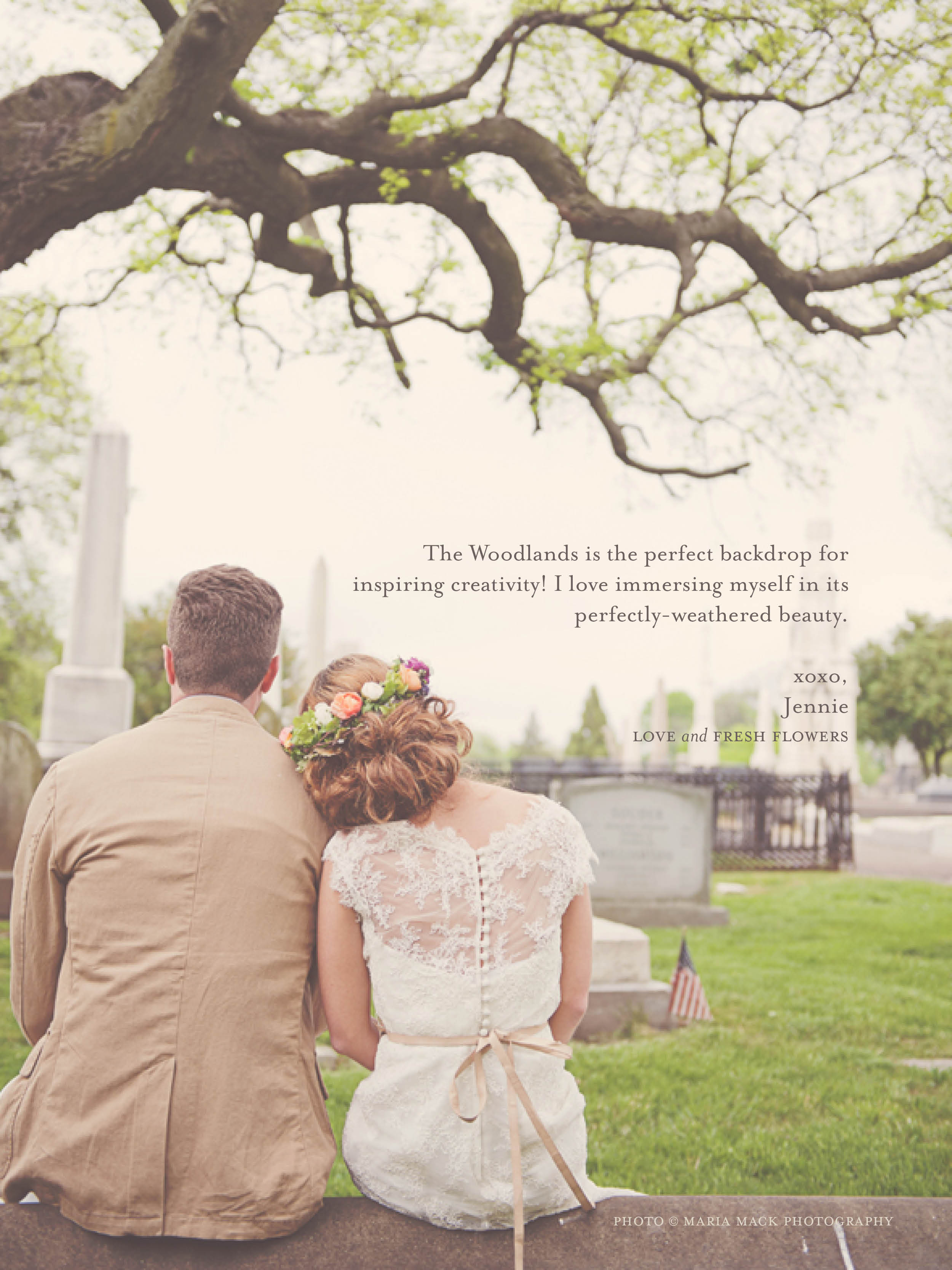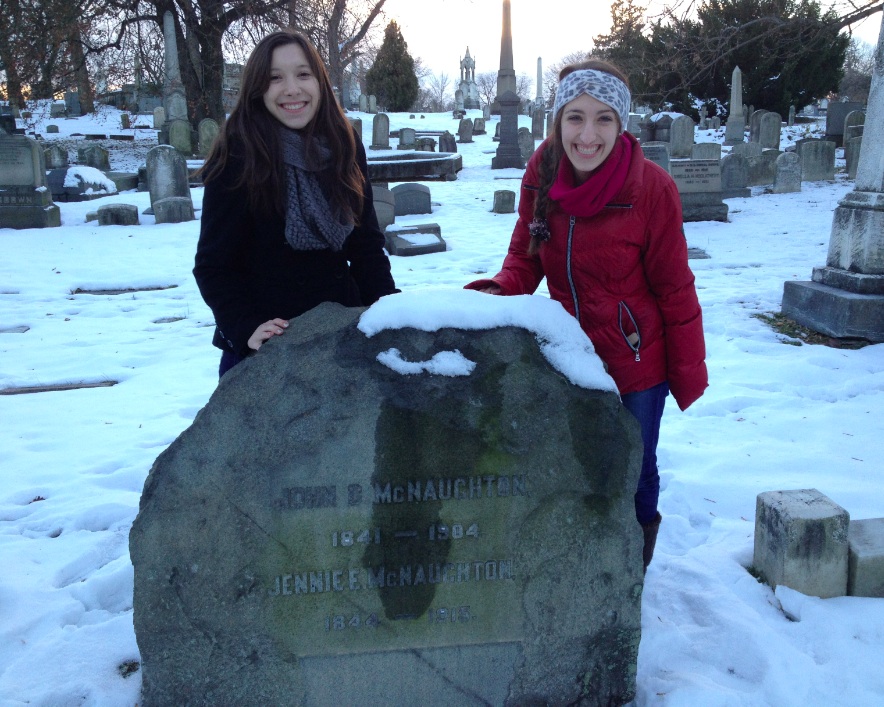This month, Trailblazers profiles the work of two incredible females in medicine: Alice Fisher and Jean C. Whelan, PhD, RN. Alice Fisher now resides in Lot 360 of Section N of The Woodlands. Jean Whelan, her contemporary counterpart, works only a few blocks away at the University of Pennsylvania School of Nursing.
Alice Fisher was a nurse who was born in England and moved to Philadelphia in 1884 to found the School of Nursing at the Blockley Almshouse and Hospital. As a young woman she studied at the Nightingale Training School at St. Thomas Hospital in England and then served in several British hospitals before her move to the United States. Once in Philadelphia she undertook the reform of Blockley Almshouse, which later became Philadelphia General Hospital [PGH], and is now part of the University of Pennsylvania medical campus. Blockley was the first institution built on land sold from the Hamilton estate, and Fisher established a School of Nursing there to combat the unhealthy, disorderly conditions of the hospital. In the four short years that Fisher worked at Blockley, she transformed the hospital and established a new generation of nurses to care for Philadelphia's citizens. Fisher's legacy continues through the School of Nursing at the University of Pennsylvania. In 1991 Penn's Center for the Study of the History of Nursing installed a memorial to Fisher on her grave.
We asked Jean to tell us more about her work and how Fisher's pioneering work in the field of nursing has influenced her career.
What is your current position?
I am currently the Assistant Director of the Barbara Bates Center for the Study of the History of Nursing and an Adjunct Associate Professor of Nursing at the University Of Pennsylvania School of Nursing.
How did you get to where you are today?
I have been a nurse for 44 years. Most of clinical experience was as a staff nurse, Assistant Head Nurse and later as a clinical supervisory nurse at a large municipal hospital in New York City. I also worked as a public health nurse and as a visiting nurse for a time. I moved to Philadelphia in 1976 where I began working in nursing education at several schools of nursing in the area. This provided me with an opportunity to blend my clinical experience with education in preparing future nurses, an activity I loved. Throughout this period, I also continued my own education, earning a masters’ degree and later a PhD in nursing history. Today I work in a position at the Bates Center which combines my research in and knowledge of nursing history with administrative skills. As part of my job, I run programs sponsored by the Bates Center which bring nursing history to both scholarly and public audiences.
How has the work of Alice Fisher influenced you in your profession?
In one sense I feel a kinship with Fisher and with her work in a tax-supported municipal institution. When I was a student, my clinical experiences were at Bellevue Hospital in New York, an institution very similar to PGH. After graduation I spent several years working in another municipal hospital. I like to think that the time I spent delivering care to a population of mainly medical indigent patients and the way it shaped my approach to nursing has similarities to Fisher’s commitment to health care.
Further, my main area of research focuses on the historical underpinnings of nurses work, in which I look at how the conventions of nurses’ work were established, what types of work activities early nurses did and how we have supplied nurses to the sick public over time. Alice Fisher was an early pioneer in establishing the nursing profession in the US. When I think of Fisher’s impact on the profession I am very impressed with how she came from England, created a school of nursing with very limited resources and influenced the trajectory of nursing education in a remarkable short period of time. One of the significant lessons that can be extracted from looking at Fisher’s life and work is that you can make a tremendous impact on society if you are smart, focused and persistent. She was also quite charismatic and very savoy in figuring out who could be of great help to her as she set up the PGH School and nursing service. I would be very happy if I could figure out how to channel her charisma and savviness!
What is your favorite part of Fisher’s work or legacy?
Fisher came to this country to work in a tax supported institution, PGH, which provided services to the poorest of society. In the 19th century the patients of PGH, who were often referred to as “inmates” did not garner tremendous sympathy and care from those better off. Yet, Fisher revolutionized the care provided to those patients and at the same time effectively created a school and nursing service of high professional standards. That she was able to combine care of the poorest members in society with advancing the education of nurses is commendable.
If you could ask her one question today, what would it be?
How did you ever accomplish so much in such a short period of time and earn a reputation for being such a wonderful, pleasant, caring person?
You can rediscover the biographies of our permanent residents everyday. Visit The Woodlands anytime of the year--the gates are open from dawn 'til dusk!

















